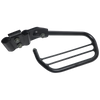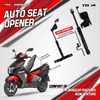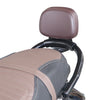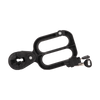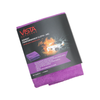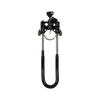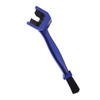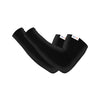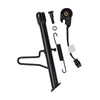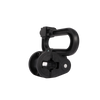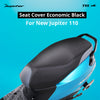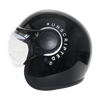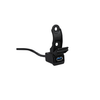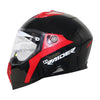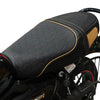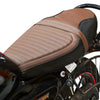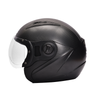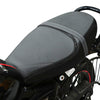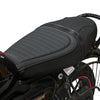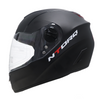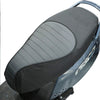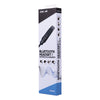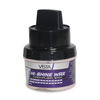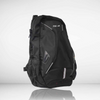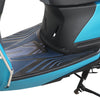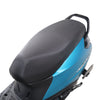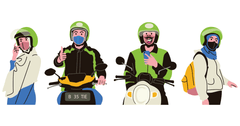Psychology of Safe Riding: Tips for Staying Alert

Mental awareness and psychological state of mind are crucial for a safe ride. And when it comes to riding a two-wheeler, it is mainly about processing a lot of information. Accidents, road rage and unexpected events are bound to happen. You must think clearly and precisely while on rides, reducing risks and maximising your safety on roads.
The best rider rides with a clear mind, makes good decisions, and proactively participates in what is happening around him or her. The more your psychological state of mind is stable while riding, the more you can make informed decisions. You can anticipate potential hazards, minimise distractions, and fully concentrate on your riding skills. All these action modes depend on your psychological factors, such as risk perception, confidence, and emotional state of mind.
In this blog, we will focus on how to ride a bike safely. Our key focus will be around:
- Focusing and concentrating
- Awareness of your situation
- Decision making
- Self-awareness
- Regular breaking
- Safe ride
Psychological Factors Affecting Rider Alertness
Your psychological state of mind determines how safe a ride you will enjoy. Many factors influence your riding experience, including your focus, motivation, confidence, stress management, and overall mental well-being.
Psychological Factors That Impact Rider Alertness
Several psychological factors impact your safe ride experience. To list a few are:
- Motivation: Your desire should be strong to succeed and push yourself. Working on improving your performance but with low motivation is the worst long-ride motorcycle tip you can follow.
- Concentration: As a rider, you should know how to maintain focus and concentration while riding a bike. This could involve navigating challenging terrain or maintaining cadence. Stay focused and concentrated for a safe ride.
- Self-efficacy: A rider should have a strong sense of self-efficacy to achieve his or her goals. These could be anything related to completing a long ride or boosting confidence and performance while navigating the terrain.
How to Manage Psychological Factors for Safer Riding

Managing your psychological well-being while riding a two-wheeler is your first step towards rider alert. Here are a few key strategies for effectively managing your psychological factors for a comfortable ride:
Self Awareness
- Identify your limitations.
- Identify your stressing triggers.
- Anticipate your potential hazards and perceive your risk factors.
Training and Skill Development
- Ensure proper motorcycling experience.
- Continuously work on your riding skills.
- Brush up your riding skills with advanced riding courses.
Mental Management
- Learn techniques to manage your stress levels.
- Keep a positive approach to life.
- Avoid being overconfident.
Adjustments to Your Riding Behavior
- Practice defensive riding techniques.
- Avoid riding distractions.
- Always maintain your riding speeds.
- Avoid aggressive riding.
Besides the ones listed above, you may seek professional support for managing your anxiety levels and experiencing a safe ride every time.
Practical Tips for Staying Mentally Alert While Riding
Long rides can be daunting with physical and emotional stresses. Therefore, It is important for you as a rider to stay alert when riding at night. Watch out for some useful long-ride motorcycle tips below:
Effective Tips to Maintain Mental Focus on the Road
Mental focus is a prerequisite for a safe ride experience. Here are a few effective tips for ensuring one:
- Stay hydrated.
- Snack on healthy items like nuts, fruits and protein bars to maintain your energy levels.
- Take frequent breaks whilst en route.
- Get a proper good night's sleep a day before.
- Warm up before your ride for a long journey.
- Pre-check your bike components.
- Wear comfortable bike safety gear.
- Stay focused and concentrated.
The Role of Technology in Enhancing Rider Alertness
Motorcycle or bike riding experience has come a long way. Technological advancements continue to improve the overall experience for riders. Today features like advanced anti-lock braking systems, traction control, electronic stability control, and adaptive cruise control are revolutionising safety and convenience. Let’s check out how these innovations are enhancing rider alertness and making every journey safer.
Smart Helmets and Their Role in Rider Safety

Smart helmets are smart because of their advanced features for a safe ride. These helmets are equipped with built-in sensors for detecting crashes and alerting your emergency contacts immediately. Here are some of its advanced features:
- Emergency alerts: Smart helmets alert you and your emergency contacts that you are about to crash. This feature also allows you to notify your emergency contacts that you are hurt.
- Improved visibility: Most of these smart helmets have LED lights to improve visibility while riding. This is especially useful in low-light conditions and can significantly reduce accidents.
- Comfort and convenience: Smart helmets offer unparalleled comfort and convenience. Many of them have inbuilt adjustable ventilation systems and are made from lightweight materials. Both these factors are crucial for improving your riding experience.
Apps and Features Designed to Enhance Rider Alertness

Staying alert on the road is essential for a safe riding experience. Advanced tools like Bluetooth-enabled connectivity, anti-lock braking systems (ABS) for enhanced control, tyre pressure monitoring systems (TPMS) for real-time updates, and engine start/stop reminders can significantly improve rider awareness and safety. These features, offered by brands like TVS, are designed to make every ride smarter and more secure.
The Benefits of Bluetooth-Enabled Navigation and Voice Commands
Bluetooth-enabled navigation systems with added voice commands are quite in demand these days. They allow hands-free interactions with a proper navigation system and enhance the safe ride feature by keeping you focused on the roads and your riding. They also offer a more convenient mode of setting routes to control your navigation functioning by voice input.
Conclusion
Your psychological stand has a significant impact on your biking riding experience. Safe riding depends on both your mental focus and the use of smart technology. Staying alert, managing psychological factors like motivation and concentration, and leveraging tools like ABS, TPMS, and smart helmets can significantly enhance your safety. Combine mental readiness with modern tech to make every ride smoother and safer.
